
China’s brokerages are sounding the alarm about the nation’s supercharged stocks.
Analysts either downgraded or issued new sell ratings on 84 mainland-listed companies in March, the peak of China’s annual earnings season, according to data compiled by Bloomberg. That’s the highest number for any comparable period since 2011, and comes at a time when Chinese stocks extended this year’s world-beating rally to 24 percent.
Traders are taking it as another sign that Beijing wants to prevent a stock bubble from forming. Negative analyst reports are so rare in China, they can trigger a wave of selling across the entire $7 trillion equity market. Brokers have little business incentive to be negative on a stock: shorting shares remains extremely difficult, meaning securities firms generate a lot more money when their clients are in the mood to buy.
“The strong indication that the state is interested in curbing overheating has probably invited some rethinking here," said Jingyi Pan, market strategist at IG Asia Pte Ltd. in Singapore. “Concerns over growth have added more momentum to these downgrades.”
Slashing Away
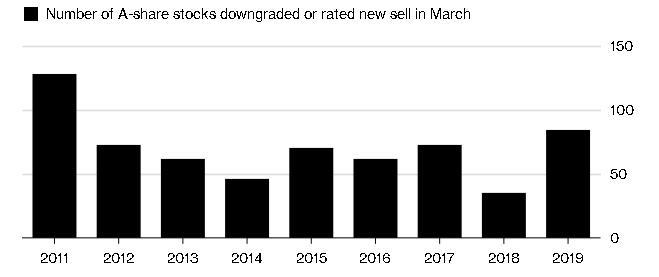
Source: Bloomberg
The loudest alarm came with Citic Securities Co.’s sell rating on People’s Insurance Company (Group) of China Ltd.: a bearish call on a state-owned insurer, delivered by analysts at China’s biggest state-owned brokerage. That triggered a 4.4 percent slump in the Shanghai Composite Index, one of its biggest routs in years. Tong Chengdun, the lead Citic analyst behind the report, didn’t immediately reply to a request for comment on the downgrade.
Tong and his colleagues wrote at the time that the insurer’s rational price was more than 50 percent below its last close. The downgrading then gathered pace, hitting other hot stocks like Wangsu Science & Technology Co. and Hengdian Entertainment Co.
Beijing has reprimanded the sell side in the past: the state media’s 2017 takedown of Kweichow Moutai Co. analysts resulted in a $6 billion wipeout.
Reviving risk-appetite while avoiding a bubble has always been tricky in China, a momentum-driven market which has seen two massive meltups in the past decade. This year, with every major benchmark entering a bull market, small caps overheating and daily turnover surging -- drawing comparisons to recent history has been inevitable.
The CSI 300 Index’s first-quarter rally was its biggest since the end of 2014 -- precisely when China’s last bubble was forming. That’s all put authorities on high alert to prevent a repeat of the crash that ensued.
While they’ve warned on leverage and speculation, Beijing has stayed clear of the heavy-handed approach that drew criticism from investors around the world last time. Chinese traders have taken on more leverage in recent months to chase the rally, with margin debt rising to its highest level since July. It’s still nowhere near the record $2.3 trillion yuan ($342 billion) reached in 2015.
“Lessons learned from 2015 have led to tighter control of leverage,” Morgan Stanley strategists including Laura Wang wrote in note in March. “We believe the rally is still in the early stage and overall market sentiment has not yet reached an overheated level.”
Source: Bloomberg
















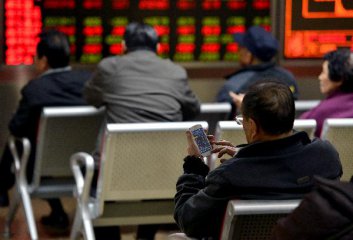
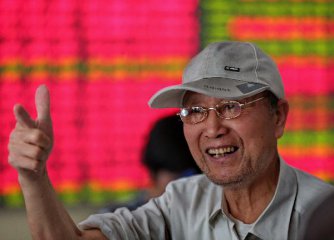
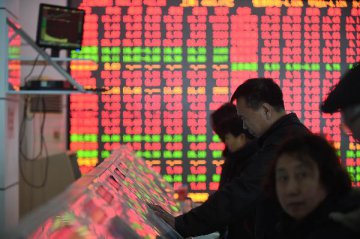
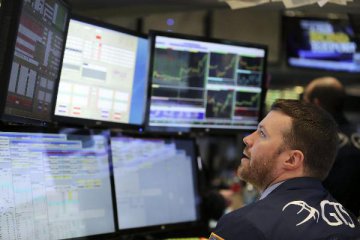

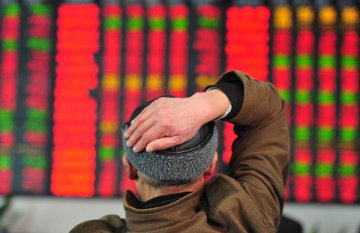


Latest comments